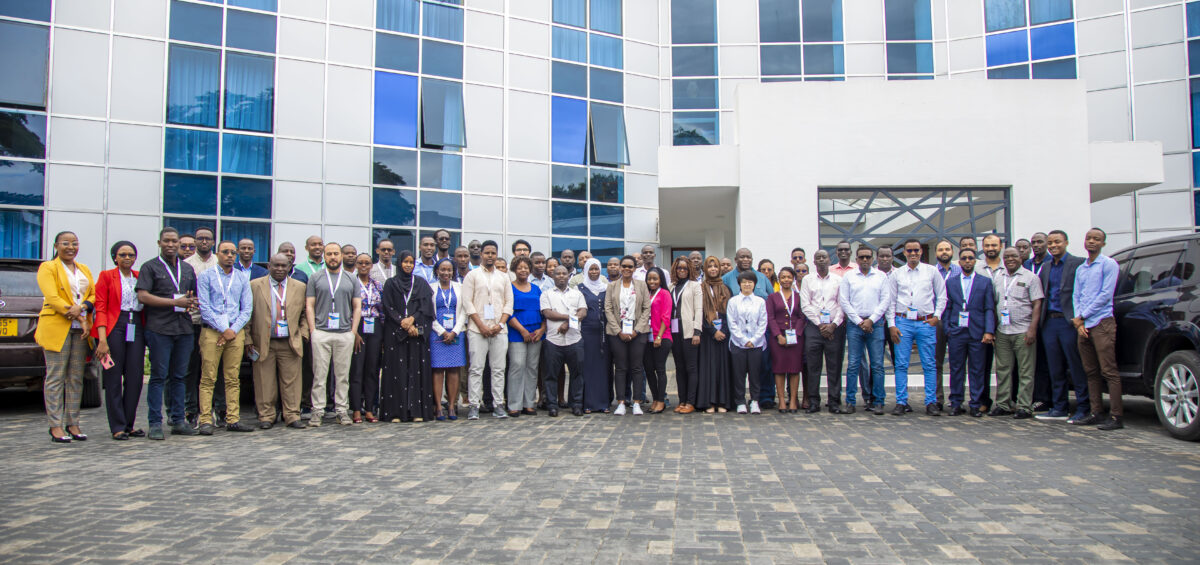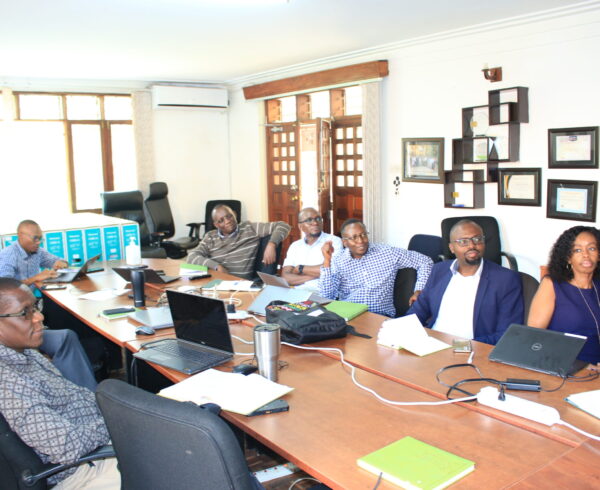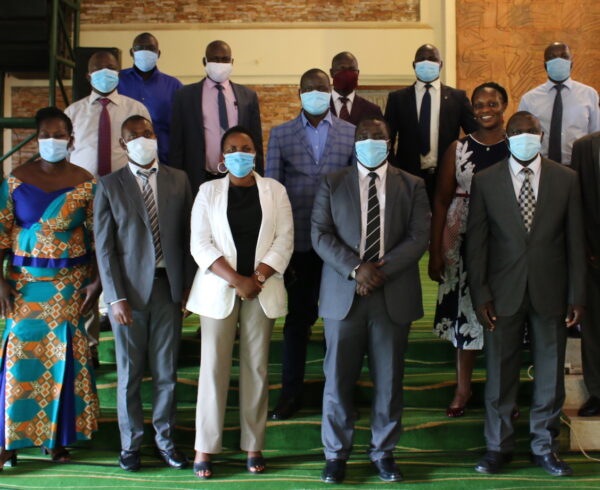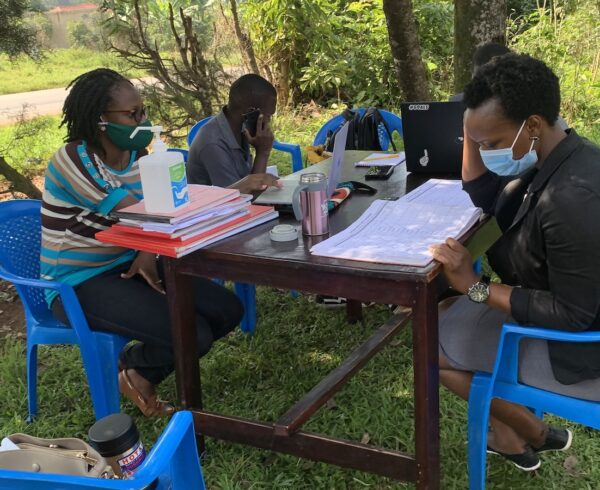One Community, 2 Conferences, 2 Countries, 3 Perspectives
12th – 16th June 2023, Oslo, Norway
3rd – 8th July, 2023, Dar-es-Salaam, Tanzania
Group photo of Norway DHIS2 conference participants
Group photo of Tanzania DHIS2 conference participants
METS, a Data Science and Informatics Implementing partner to the Ministry of Health (MoH), had the privilege of participating in the DHIS2 Annual Conference in Norway and the DHIS2 Tracker Configuration Academy in Tanzania. These global events brought together a diverse community of DHIS2 experts, including implementers, developers, ministry representatives, technical partners, and donors from around the world.
DHIS2 is an open-source, web-based health management information system (HMIS) platform. In Uganda, DHIS2 serves as the foundation for eHMIS, acting as the central database for aggregated public health statistics since 2012. It plays a vital role in reporting health data to regional and international stakeholders and facilitates mobile health data collection via SMS and smartphones. Additionally, DHIS2 enables the longitudinal tracking of patients enrolled in specific healthcare programs.
The conference and academy offered METS a unique opportunity to learn from other global implementers, gain insights into the latest DHIS2 developments and innovations, and witness live demos from developers. The academy equipped attendees with skills needed to design, configure, and manage Tracker programs, and introduced data analysis concepts specific to Trackers. The events were a platform for sharing experiences, building connections, and fostering potential new partnerships and collaborations.
During the annual conference, METS presented an abstract on the ‘Underrepresentation of women in DHIS2’, thus contributing to the collective effort to improve inclusivity and diversity in healthcare data management.
In this exclusive interview, we had the privilege of sitting down with three METS representatives – Moses Tushabe, Sharon Abowe, and Ausse Kalega. They graciously shared their insights and experiences from their participation in two DHIS2 meetings. Our discussion delves into the meeting objectives and the unique perspectives these individuals bring, shedding light on the significance and impact of these gatherings. Let’s explore the highlights of their journey and the knowledge they’ve gained in this informative conversation.
- What were some of the most memorable sessions or presentations you experienced at the conference? Could you share some key takeaways or insights from those sessions?
Sharon (Norway): The most memorable session for me was my presentation, Women in DHIS2, which was under the Equity and Inclusion category. This was the first time this category was featured at the DHIS2 Annual Conference and as such there was so much interest in what we had to say, and great, positive feedback from the audience. It was clear that it was an existing challenge that had not been pointed out before in such a manner.
Looking back and forth/what’s next for DHIS2 was quite interesting too, basically looking at where DHIS2 began, the journey it has been on, the great strides leading to today and what is in store. This was very insightful as it shows that we still have so much room for innovation, for example now DHIS2 is being used for education in some countries.
Ausse (Tanzania): My highlight was the session on “Program Rules” where more ideas were shared to allow creation and control of the dynamic behavior of the user interface in the Tracker Capture Application during data entry.
Moses (Norway): The presentations on the new features in the Android app stood out for me, because of the way it was presented in the form of an acted play skit and secondly because of the great improvements that have been achieved. The other presentations that stood out were the presentation on ‘Integration of DHIS2 using Apache Camel’ and the App competition presentations at the end of the conference.
- How did attending the international conference benefit you professionally? Did you gain any new knowledge, skills, or industry connections that have been valuable to your work?
Moses (Norway): Professionally, it was an amazing experience. Given the years of experience I have in using DHIS2 and maintaining several instances at national level, It was a great thing that I got a chance to interact with some of the professionals that I always only met via mail and talk about experiences and discuss alternative solutions to some of the common challenges that were faced on a daily by some of the users that we support in the various institutions that we work for.
Sharon (Norway): I got to meet and interact with some great minds. There was so much spoken and showcased during the conference and most of these propelled us to think of our DHIS2 instances that we are running at METS and how we can make them better. One of the results of this is the upgrade of the DREAMS and the KP/PrEp trackers to the latest versions of DHIS2.
I was also privileged to meet some of DHIS2‘s technical and influential women leaders who are active contributors, like Professor Kristin Braa, the Director, HISP Centre, University of Oslo, and Marta Vila, the HISP Android Product Manager, University of Oslo, who not only greatly look forward to improving the representation of women in DHIS2, but also to help in improving their skill, through various initiatives.
Ausse (Tanzania): It has greatly impacted on my skills and experience and expanded my social network within the DHIS2 community. I was able to share my experiences and challenges and I was provided solutions and better perspectives on how certain issues are handled elsewhere.
- Were there any emerging trends or advancements discussed at the conference that you found particularly interesting? How do you think these trends will impact METS mission in the near future?
Ausse (Tanzania): Yes, In Rwanda, the Non-Communicable Disease (NCD) DHIS2 Instance is Integrated with the National Population Registry for Auto Filling of client details during registration by use of the National ID. This makes data entry easier, avoids duplication of records and reduces errors during entry.
Sharon (Norway): There are opportunities for PHDs for those interested, METS DSI Team could benefit from this. I think that the DHIS2 App competitions are a good addition to the conference and METS could take part in the next one.
Moses (Norway): There were major advancements that have been made to the Maps feature of DHIS2, and of course this will impact how visualizations are done in the future using DHIS2.
- As a result of attending the international conference, do you have any plans for implementing or incorporating new ideas, strategies, or initiatives into your work or organization? If so, what are some of the key changes you envision making?
Moses (Norway): Of course, I have already taken the technical team that supports quarterly reporting through the new indicator validation app. I am also working with my team to develop a mediator based on the FHIR standard and using Apache Camel to help make the process of integration with our DHIS2 instances easier.
Sharon (Norway): As a follow up on my presentation ‘Women in DHIS2’, there are ongoing discussions on how to avail DHIS2 opportunities to more women. We are working hand in hand with HISP Uganda and the Ministry of Health, to create Women in DHIS2 group, as we liaise with the University of Oslo, Norway. We are working on strategies to achieve more representation of women at DHIS2 academies.
5. Can you describe the overall atmosphere and networking opportunities at the conference? Did you have the chance to connect with professionals from different countries or organizations? How did these interactions enhance your understanding of the global landscape of the work we do at METS?
Moses (Norway): I had a chance to interact with a lot of professionals and shared with them some of the unique challenges that we face at METS since we deal with trackers that handle very large volumes of data. Through our discussions they came to know that some of the inbuilt solutions they provide in DHIS2 become ineffective when the amount of data exceeds certain limits. I presented to them some of the solutions I had created to address some of the challenges we were facing.
I also had a chance to meet the PEPFAR team (DATIM team) that I normally work with during the quarterly reporting periods. I discussed with them some of the challenges the team on our side was facing during indicator validation before report submission. We were able to set up alternative and easier ways of performing validation that the team on our side has been able to now set up and is ready to use during the next quarterly reporting.
Ausse (Tanzania): Yes, I connected with different experts from different countries who shared their experiences and use cases of DHIS2 in their health sectors. From these interactions, we have embarked on updating all our DHIS2 Tracker instances (mainly the KP and DREAMS Trackers) that I support to benefit from the new features that have been added in DHIS2.
- How would you summarize the overall impact and significance of the conference in terms of advancing knowledge and fostering collaboration within your field? Would you recommend this conference to others, and why?
Moses (Norway): I would recommend the conference to others because it gives an opportunity to meet some of the great minds in the industry, have discussions with them, pick their thoughts on some of the challenges you might be facing that they have solved and have solutions to those challenges during the face-to-face interactions with them.
Sharon (Norway): I personally look forward to applying the knowledge and experiences gained from the DHIS2 Annual Conference to enhance healthcare data management in Uganda and strengthen our commitment to better healthcare outcomes for all. Together, let’s continue our journey towards improved health information systems and ultimately, a healthier nation.
- Are there any upcoming conferences or events related to the topics discussed at the international conference that you would recommend our readers to attend? What makes these events noteworthy or relevant?
Ausse (Tanzania): Android Configuration and Use Academy – this will be hosted in Colombo, Sri Lanka from 27th November – 1st of December 2023. This is important as it put into better use the DHIS2 Android Application for mobile services delivery and use of mobile devices in remote and hard to reach areas.
DHIS2 Asia/Pacific Conference scheduled for 22nd – 24th November 2023 – is important as different experiences and ideas will be shared from users from all over the world and this could have a strong impact on our use cases in the country.
8. Experiences
a) How did the international aspect of the conference influence the discussions and perspectives shared? Were there any cultural or regional differences that stood out during the conference sessions or conversations?
Ausse (Tanzania): Some of the accents from the different presenters from the different countries were harder to understand during content delivery but we later adapted to them.
b) What was the travel experience like?
Moses (Norway): My travel experience was great apart from the 17 hours layover in the Netherlands on our return journey and the food poisoning on my last day in Norway.
Ausse (Tanzania): We realized that Ugandan Passports and the National IDs could not even be used to register for a sim card, otherwise it was an awesome experience!
c) What cultural shocks/differences did you experience?
Moses (Norway): It literally never gets dark, somehow you just find yourself dosing/sleeping when it is your normal sleeping time. But the longer days are good since you get a chance to visit some of the tourist attractions after the day’s sessions.
I didn’t quite enjoy the food of course because trying out new food doesn’t come easy to me Otherwise; nothing really was a shock when it comes to cultural differences.
Ausse (Tanzania): The food had too much pepper!
d) What did you like about the country you visited?
Moses (Norway): It was a very organized country especially their transport system. You can easily get yourself anywhere in the shortest time possible even if you have basic knowledge in map reading and a little common sense.
Ausse (Tanzania): The view of the ocean was spectacular!




